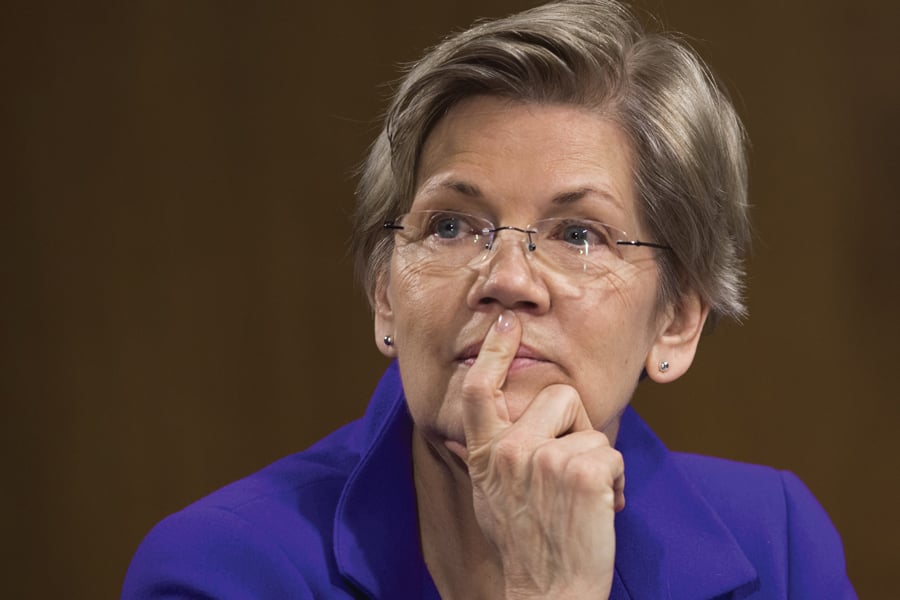Presidential hopeful Elizabeth Warren would partially fund her Medicare for All health care proposal — a key part of her campaign platform — through 401(k) savers, sparking a backlash from both industry trade groups and financial advisers.
Ms. Warren, a Democratic senator from Massachusetts and currently a top contender to become the Democratic Party's nominee for president in the 2020 election, proposed a tax on financial transactions to help fund
Medicare for All, a plan that aims to provide health insurance for all Americans and eliminate out-of-pocket health care costs.
The Warren campaign says wealthy Americans — not the middle class — would bear the
$20.5 trillion in additional federal spending needed to fund the plan over a decade. But some groups are worried that 401(k) plan participants would be on the hook for some of that spending.
"The Warren proposal does, in fact, include a middle-class tax — a middle-class tax on retirement savings," said Brian Graff, chief executive of the American Retirement Association, a trade group representing the interests of retirement plan advisers, plan sponsors and other parties.
"Saving for retirement is hard work," Mr. Graff added. "And those in Washington shouldn't work to make it any harder."
[Recommended video: Mary Beth Franklin: Good news on Medicare surcharges]
Ms. Warren's proposal includes a 0.1% tax on financial transactions that involve derivatives and most types of securities, like stocks and bonds. She estimates the tax will generate $800 billion in revenue over a decade.
Ms. Warren's plan also calls for a change in
how capital gains are taxed. For example, income from an asset that has grown in value would be taxed annually instead of at the time of sale. "Preferential tax rates" on capital gains and dividends would also be eliminated.
Combined, the plan would generate roughly $2 trillion over a decade. However, there's an explicit exclusion for retirement accounts, whereas there's no exclusion for the financial transactions tax.
Martin Baily, senior fellow in economic studies at the Brookings Institution, said that while a financial transactions tax isn't a "particularly good way to raise revenue," a small tax wouldn't do a lot of harm.
However, such a tax would make financial markets less efficient, Mr. Baily said, adding that he'd rather see higher income, capital gains and corporate taxes.
Critics say that while retirement savers are seen as long-term investors who don't often transact in their accounts, the 0.1% tax would affect the regular 401(k) contributions that plan participants make with each paycheck. The tax would also affect people who are rebalancing their accounts or rolling money from one 401(k) plan to another when finding a new job.
The tax would also adversely affect pension plans, making them more expensive for employers to offer, along with money contributed to health savings accounts and 529 plans for college savings, said Diann Howland, vice president of legislative affairs at the American Benefits Council.
"There's a lot to be worried about, particularly in a world where people are more responsible for their long-term savings for health and retirement," Ms. Howland said. "It's not a great thing to do to the middle class."
The American Retirement Association, citing an analysis by the Modern Markets Initiative, said a financial transactions tax would cost a 401(k) and IRA investor $64,200 in savings over 40 years, which could lead to a delayed retirement.
"Don't underestimate the compounding of money," Ms. Howland said. "Even a small tax can compound into a lot of money."
Jason Chepenik, managing partner at advisory firm Chepenik Financial, said a financial transactions tax is a "horrible idea on many levels." Investors have benefited from a reduction in investment and other 401(k) fees over the past several years, and an additional tax would erode those improvements.
"We don't need another headwind," Mr. Chepenik said.







